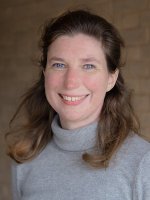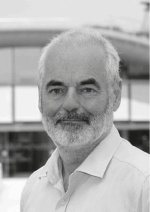Cambridge Conversations Webinar: COVID-19 behind the numbers – statistics, models and decision-making
The second webinar in the series examined the numbers surrounding COVID-19 and the role that model-based knowledge can have on strategic and policy decisions.
Featuring Professor Sir David Spiegelhalter, one of the world’s foremost biostatisticians, the webinar explored topics including the reporting of cases and deaths, the bases on which predictions have been made, comparisons with the ‘normal’ risks faced by people and whether many deaths from COVID-19 could have been expected and have simply been brought forward.
Professor Mike Hulme, whose expertise is in climate change, with a particular interest in the role of model-based knowledge in strategic and policy decision-making relative to political and cultural values: a question of similar importance for COVID-19.
Dr Alexandra Freeman introduced the panel and moderate the event.
The Cambridge Conversations webinar series provides the opportunity to listen, connect and engage with current Cambridge thinking. You can find the whole Cambridge Conversation webinar series on our Cambridge Conversations YouTube playlist.
Speakers

Dr Alexandra Freeman
Dr Alexandra Freeman is Executive Director at the Winton Centre for Risk and Evidence Communication. Prior to joining the Winton Centre in 2016, Dr Alex Freeman had a 16 year career at the BBC, working on series such as Walking with Beasts, Life in the Undergrowth, Bang Goes the Theory, Climate Change by Numbers, and as series producer of Trust Me, I’m a Doctor. Her work won a number of awards, from a BAFTA to a AAAS Kavli gold award for science journalism. In addition, Alex worked with associated content across a range of other media – designing websites, games, formal learning resources and social media content – to bring science to the widest possible audience. She is particularly interested in helping professionals such as doctors, journalists or legal professionals to communicate numbers and uncertainty, and in whether narrative can be used as a tool to inform but not persuade. She is an advocate of Open Research practices and the reform of the science publishing system.

Professor Sir David Spiegelhalter
Professor Sir David Spiegelhalter is Chair of the Winton Centre for Risk and Evidence Communication in the University of Cambridge, which aims to improve the way that statistical evidence is used by health professionals, patients, lawyers and judges, media and policymakers. He advises organisations and government agencies on risk communication and is a regular media commentator on statistical issues, with a particular focus on communicating uncertainty. His background is in medical statistics, and in addition to more than 200 refereed publications, and has authored and co-authored several books. He works extensively with the media, and presented the BBC4 documentaries “Tails you Win: the Science of Chance”, the award-winning “Climate Change by Numbers”, and in 2011 came 7th in an episode of BBC1’s Winter Wipeout. Sir David was elected Fellow of the Royal Society in 2005 and knighted in 2014 for services to medical statistics. He was President of the Royal Statistical Society for 2017–18.

Professor Mike Hulme
Mike Hulme is Professor of Human Geography and Fellow of Pembroke College. Mike studies the cultural and epistemic construction of the idea of climate change, and its discursive and material effects, drawing upon scientific, social scientific and humanities insight. He is especially interested in how model-based knowledge is used in decision-making and public communication around climate change and – by association – in the case of Covid-19. Prior to joining Cambridge, he spent four years as Head of Department and professor of climate and culture in the Department of Geography at King's College London. He was the Founding Director of the Tyndall Centre for Climate Change Research, based at the University of East Anglia and worked before that in that university’s Climatic Research Unit. He led the preparation of a series of climate scenarios and reports for the UK Government and, in 2007, he received a personalised certificate from the Nobel Peace Prize committee in recognition of his 'significant contribution' to the work of the United Nations' IPCC. Mike is the author of 10 books on climate change and the founding Editor-in-Chief of the review journal Wiley Interdisciplinary Reviews (WIREs) Climate Change.